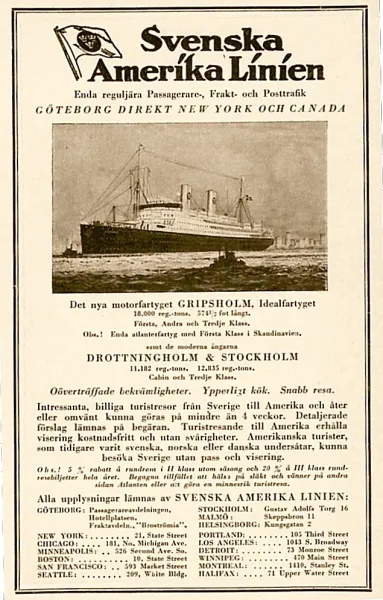Fated Voyage

The black and white postcard, 75 years old,
depicts the MS Gripsholm, “Floating Palace,”
Sweden’s glory—the first diesel-powered
transatlantic vessel. The pinnacle of luxury,
its cargo included my mother,
a little Englishwoman on her own,
bound for a new life in a new country.
But the Gripsholm was more than a cruise ship:
It carried war brides and prisoners of war,
and — while my mother sailed to her destination
as a bride — she was also a kind of prisoner —
a woman who survived poverty,
lived through the Blitz, did her part in a factory,
then packed her belongings to meet a fate
that was a kind of bondage. Upon her arrival
in New York, everything she owned was stolen.
Upon her arrival at her new home,
her soul was stolen. Far from her family,
her beloved tea houses, and the rhythms of London,
she spent her life as a victim — of beatings,
boredom, and suffocation from relentless humidity
and the toxic atmosphere of small minds.
In the photo, tugboats surround the Gripsholm,
ready to take her gracefully into port.
Somewhere inside, amid the fine china and crystal,
Finnish baths, plush spa towels, and garden lounges,
my mother waits to disembark,
not realizing that the Floating Palace will be
her last taste of luxury, her final glimpse of freedom.
Diane Elayne Dees
